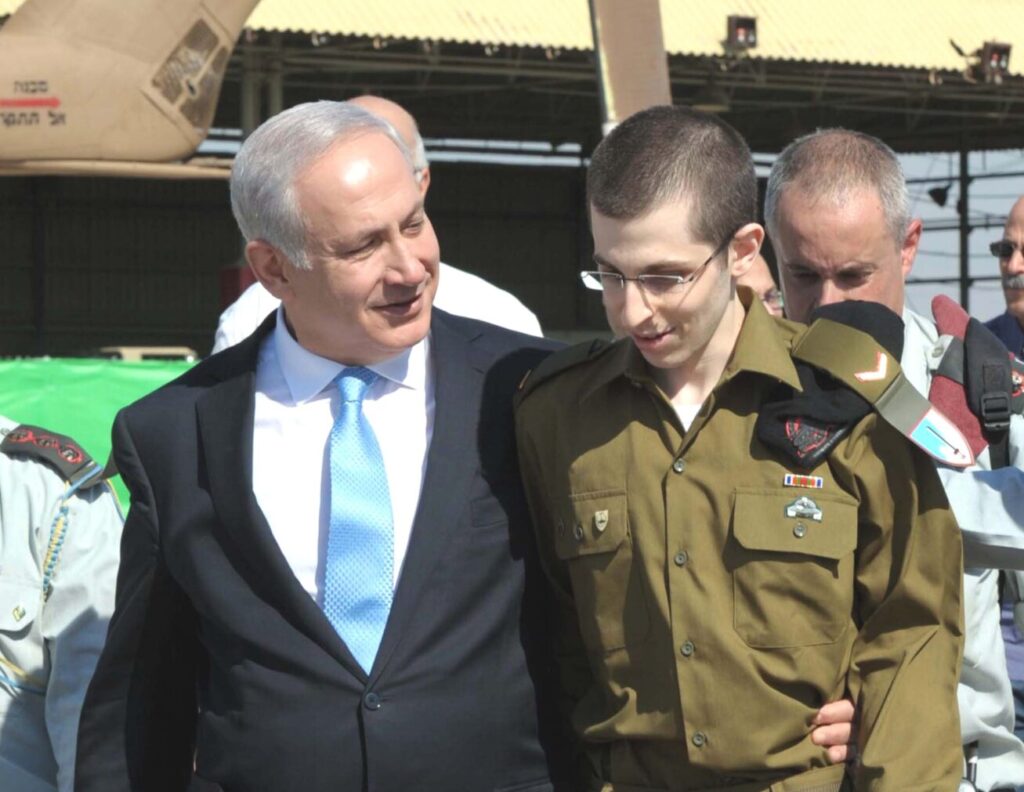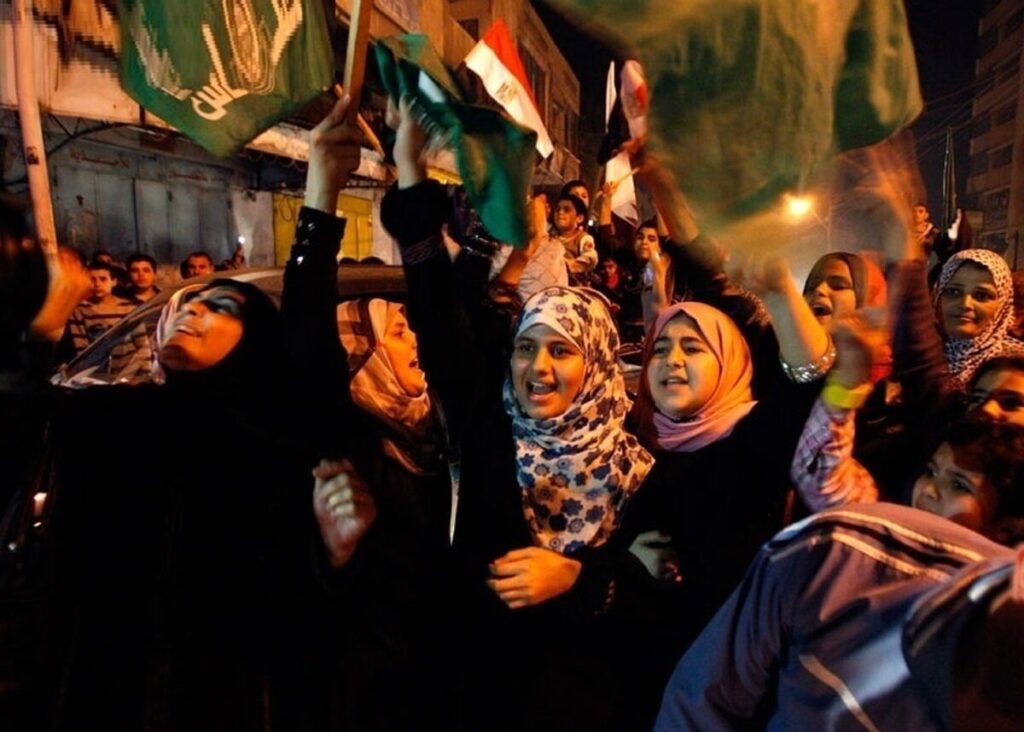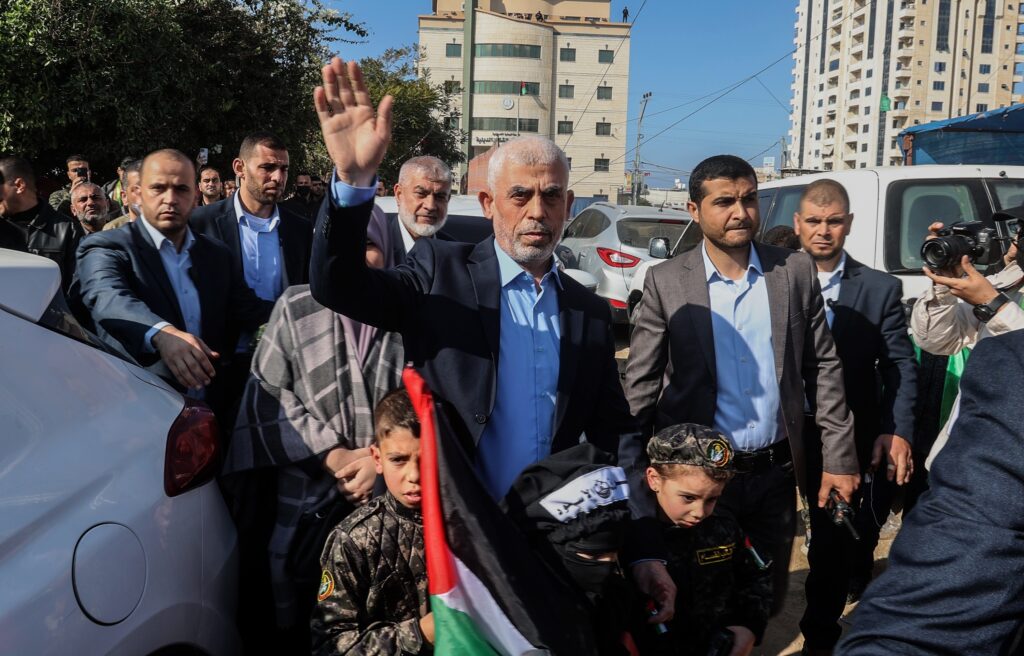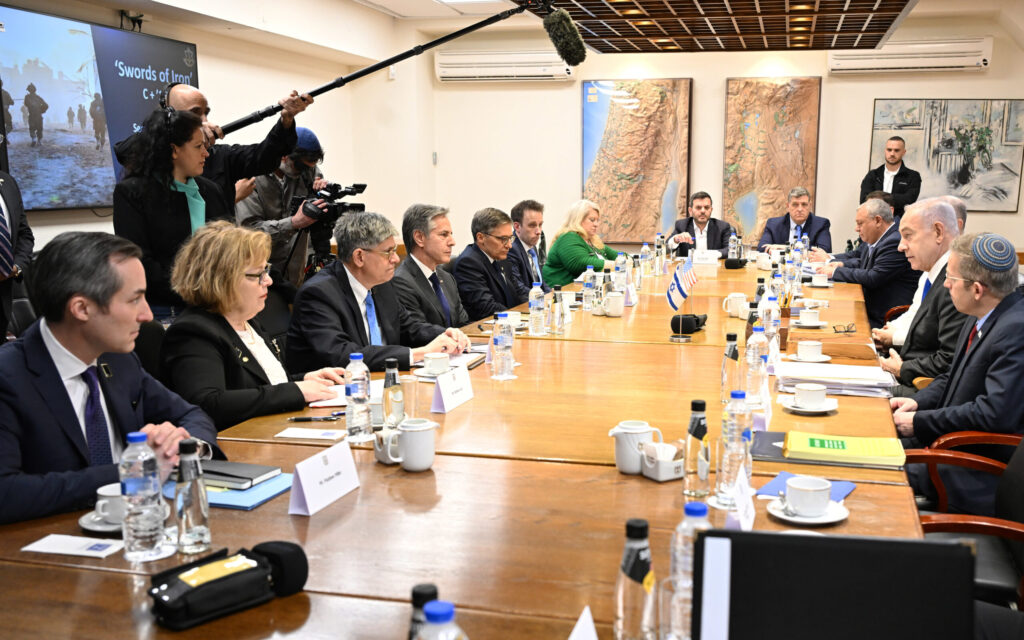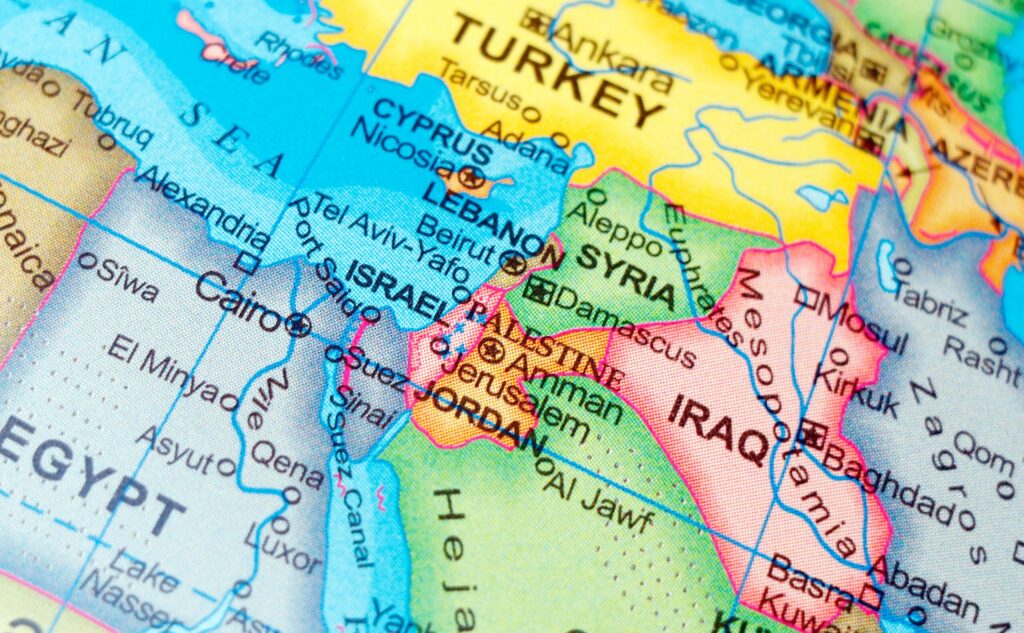UPDATES
Iran Sanctions re-visited/ Massacre in Jerusalem
Mar 7, 2008 | AIJAC staff
Update from AIJAC
March 7, 2008
Number 03/08 #03
This Update leads with two pieces on the latest round of UN sanctions on Iran, passed on Monday.
First up, Zalmay Khalilzad, the US Ambassador to the UN, explains what the new UN resolution is intended to achieve, and the evidence on which it is based. He also makes it clear that the US and other powers are offering support for a genuinely peaceful Iranian civil nuclear power program, and details other countries which have successfully abandoned nuclear weapons ambitions, and the dangers created by Iranian behaviour. He makes the case for a suspension of enrichment and negotiations. To read Khalilzad, CLICK HERE. Meanwhile, American law professor Alan Dershowitz takes on those who doubt that Iran is pursuing nuclear weapons.
Next up, Michael Jacobson of the Washington Institute for Near East Policy, a former government official specialising in terrorism financing, looks at the financial implications of the latest international sanctions against Iran. While he details the terms of the latest UN Security Council (UNSC) resolution, he also discusses another less publicised initiative against Iranian financial institutions by FATF, the international body which coordinates efforts against illicit financing. He discusses how the financial pressure on Iran will be increased by both, and makes a strong case that financial pressure is an essential tool for pressuring Iran to suspend its nuclear efforts. For all of Jacobson’s analysis, CLICK HERE. More comment on the provisions of the UNSC resolution comes from former UN counter-terrorism official Victor Comras.
Finally, we have some analysis of the implications of the massacre of eight students at a Jerusalem religious school over night, from top Israeli security affairs columnist Ron Bin-Yishai. Bin-Yishai says the Jerusalem attack should be seen as potentially part of a new Hamas wave of terror efforts to increase the pressure on Israel in order to attempt to obtain a ceasefire that it will be able to portray as a “victory”. He has some intelligent advice about how Israel should prepare to respond. To read it all, CLICK HERE. Some of the international reaction to the attack is detailed here and here. Palestinian affairs journalist Avi Issacharoff says this attacks was seen as an “unusual political and military achievement” by Palestinian terror groups.
Readers may also be interested in:
- In the wake of a joint NGO report complaining about the bad situation in Gaza, an excellent backgrounder on the various efforts Israel is making to ensure Gaza receives essential supplies.
- The Ottawa Citizen on “What Hamas wants”.
- Israeli military chiefs are considering supporting an international force to control Gaza, especially if they are forced to execute a major military incursion in response to ongoing attacks.
- Some analysis of Israel’s fraught efforts to patrol the Gaza border, at which a soldier was killed yesterday by a bomb.
- Reports of growing violence on Iranian streets between police and drug-dealing gangs, as well as locals offended by crackdowns on those whose dress is deemed insufficiently modest.
Iran’s Nuclear Threat
By ZALMAY KHALILZAD
Wall Street Journal, March 4, 2008
The United Nations Security Council has passed another resolution concerning Iran because its nuclear program is an unacceptable threat. Iran’s violations of Security Council resolutions not only continue, but are deepening. Instead of suspending its proliferation-sensitive activities as the council has required, Iran is dramatically expanding the number of operating centrifuges and developing a new generation of centrifuges, testing one of them with nuclear fuel.
Once again, Iran has not made the choice the world had hoped for; once again, the Security Council has no choice but to act. At stake is the security of a vital region of the world, and the credibility of the Security Council and the International Atomic Energy Agency, as they seek to hold Iran to its nonproliferation commitments.
The latest report from the IAEA states that Iran has not met its obligation to fully disclose its past nuclear-weapons program. On the core issue of whether Iran’s nuclear program is strictly peaceful, the report showed no serious progress.
The IAEA presented Iran with documents assembled over a period of years from multiple member states and the agency’s own investigations. The documents detailed Iran’s efforts to develop a nuclear warhead, including designs for a missile re-entry vehicle, and showed other possible undeclared activities with nuclear material.
Iran dismissed these documents as “baseless and fabricated.” But the IAEA does not share that conclusion.
Instead of slogans and obfuscations, the international community needs answers from Iran. The international community must be able to believe Iran’s declaration that its nuclear program is for exclusively peaceful purposes. Iranian leaders must as a first step fully disclose past weapons-related work, and implement additional safeguards to ensure no continuing hidden activities. We agree with the IAEA that until Iran takes these steps, Iran’s nuclear program cannot be verified as peaceful.
The latest IAEA report also states that Iran is not suspending its proliferation-sensitive activities.
For almost two years now, the Security Council has required Iran to suspend all of its enrichment-related, reprocessing, and heavy water-related activities. I want to ask the Iranian leaders, “If your goal is to generate nuclear power for peaceful purposes, why do you court increasing international isolation, economic pressure and more, all for a purported goal more easily and inexpensively obtained with the diplomatic solution we and others offer?”
I want the Iranian people and others around the world to know that the United States recognizes Iran’s right to develop nuclear energy for peaceful purposes. They should know that the five permanent members of the Security Council and Germany have offered to help Iran develop civil nuclear power, if it complies with the Security Council’s demand — a very reasonable demand — to suspend enrichment. They should know that the package of incentives includes active international support to build state-of-the art light water power reactors, and reliable access to nuclear fuel.
Iran should do what other nations have done to eliminate any doubts that their nuclear program is peaceful. Many states have made the decision to abandon programs to produce a nuclear weapon. Two of them sit on the Security Council today: South Africa and Libya.
Other countries that have stepped away from past nuclear-weapon aspirations include Brazil, Argentina, Romania, Ukraine and Kazakhstan. These countries did not see their security diminished as a result of their decisions. Indeed, one could easily say their security has been enhanced. Nor did they lose their right to develop nuclear energy. We urge Iran to take the same path these other states have chosen.
The international community has good reason to be concerned about Iran’s activities to acquire a nuclear-weapons capability. The present Iranian regime, armed with nuclear weapons, would pose a greater potential danger to the region and to the world.
The Iranian government has been a destabilizing force in the broader Middle East and beyond. Contrary to its statements, Iran has been funding and supporting terrorists and militants for operations in Lebanon, the Palestinian territories, Iraq and Afghanistan. Their lethal assistance has harmed countless innocent civilians. The president of Iran has made many reprehensible statements — embracing the objective of destroying a member state of the United Nations.
Because of all these factors, the international community cannot allow Iran to develop nuclear weapons. If Iran continues down its current path, it would likely fuel proliferation activities in the region, which, in turn, could cause the demise of the Nuclear Non-Proliferation Treaty regime itself.
The U.S. remains committed to a diplomatic solution. If Iran shares this commitment, it will suspend its enrichment and reprocessing activities and let diplomacy succeed. We call on Iran to engage in constructive negotiations over the future of its nuclear program. Such negotiations, if successful, would have profound benefits for Iran and the Iranian people.
The message from the U.S. to the people of Iran is that America respects you and your great country. We want Iran to be a full partner in the international community. And as President Bush has said, if Iran respects its international obligations, it will have no better friend than the United States of America.
Mr. Khalilzad is U.S. Ambassador to the United Nations.
———————————————————————-
Iran and the Road Ahead
By Michael Jacobson
PolicyWatch #1350
March 6, 2008
Recently, two important developments have broken months of gridlock on the Iranian nuclear issue: a third round of UN sanctions and a new warning by the Financial Action Task Force (FATF). Although both measures are positive, their ultimate impact will depend on how aggressively and effectively key governments implement them.
Security Council Vote
The UN Security Council adopted Resolution 1803 on March 3, after nearly eight months of negotiations. The resolution will have an important symbolic impact, given that the December 2007 U.S. National Intelligence Estimate (NIE) seemed to halt international momentum to pressure Iran, making it unclear whether additional rounds of UN sanctions were even possible. The resolution’s near-unanimous passage — with fourteen members approving and Indonesia abstaining — will send a strong message to Tehran. Those voting in favor included Russia, China, and South Africa — all countries with longstanding economic ties to Iran.
The previous two unanimous resolutions (1737 and 1747) caught Iran by surprise, and the latest will undoubtedly do the same. President Mahmoud Ahmadinejad’s recent statements indicate that he believed the UN would not sanction Iran further, especially in the post-NIE climate. The new resolution should show Iran that the Security Council is not paralyzed, and that future UN action is possible down the line.
Resolution 1803 builds on the two previous resolutions by expanding the blacklist of entities and individuals tied to Tehran’s nuclear program; banning the sale of dual-use components to the regime; calling on member states to inspect cargo going to or coming from Iran; and urging countries to “exercise vigilance” in any trade incentives or guarantees they seek to broker with Iran. Perhaps most important, the resolution calls for similar vigilance over financial institutions regarding their dealings with Iranian banks — particularly Banks Saderat and Melli.
FATF Warning
On February 28, FATF — the international standard-setting body for efforts against illicit financing — reiterated its October 2007 warning about Iran, calling on member financial institutions to use “enhanced due diligence” when dealing with the country. The FATF president also urged Tehran to address “shortcomings” in its anti-money laundering and terrorism financing regimes immediately.
In evaluating the significance of FATF’s action, it is important to look at the organization’s composition. China and Russia are members, as are a number of Iran’s other key trading partners, including Italy, Japan, Germany, and the Gulf Cooperation Council. Since FATF works by consensus, both the February and October warnings were presumably issued without opposition from any of the thirty-four members.
Iran’s recent behavior indicates that it is increasingly worried about FATF’s actions, as it should be. Since the October warning, Iran has enacted legislation to combat money laundering, and government officials claim that a “supreme council” will be established to address such issues. In addition, even though Iran is not a FATF member, it sent a delegation to lobby FATF about its recent legislative changes. FATF dismissed the Iranian claims, however, calling the changes “skimpy” and noting their “big deficiencies.”
Financial Impact
Although no additional Iranian financial institutions were formally blacklisted, the UN and FATF moves could nonetheless increase financial pressure on Tehran. Global financial institutions — risk-averse by nature, particularly with regard to “reputational risk” — are already leery about dealing with Iranian banks, and this new warning may reinforce their cautiousness.
In fact, according to U.S. Treasury undersecretary Stuart Levey, all of the global financial executives that departmental officials have met with over the past two years have either cut off or reduced their institutions’ exposure to Iran. The number of foreign banks operating in Iran has sharply declined since 2006, dropping from forty-six to twenty. Surprisingly, even Chinese and United Arab Emirates banks seem to be exercising greater caution in their business dealings with Iran in recent months.
Reports that two British banks — Lloyds TSB and Barclays — are under investigation by the U.S. Justice Department and the Manhattan district attorney for possible violations of the Iran sanctions regime should only heighten the financial sector’s concern. Financial institutions are particularly eager to avoid being the “next ABN Amro” — the Dutch bank fined $80 million by the United States in 2005 for having an inadequate program in place to ensure compliance with U.S. sanctions against Iran and Libya. The Financial Times noted that the fine sent “seismic waves through the international banking system,” and that the “reverberations are still being felt today.”
How the Europeans respond to the new resolution will be crucial. Following the two previous resolutions, the European Union went further than the UN required, freezing the assets of not only the designated fifty individuals and entities, but also twenty others. The EU has also enacted a more comprehensive arms embargo and travel ban against Iran and its officials than required by the UN.
Now that the UN has spoken, perhaps it will free the EU to act further. While France and Britain have been urging expanded EU efforts for months, Germany and others have called for restraint while awaiting a UN decision. Given the extensive economic ties between various EU states and Iran, bold action by the union could have a significant effect. An especially powerful measure would be a European ban on Iran-related export credits — a form of government insurance that has long underpinned European-Iranian business ties. Given that the UN resolution specifically calls on countries to exercise vigilance with this type of assistance, the Europeans would have ample justification for their own ban.
Challenges Ahead
A more difficult challenge for the United States and its allies will be to ensure that financial efforts against Iran are heeded by smaller banks and companies that do not conduct business in the United States or Europe. For example, as the larger, more established banks have scaled down their dealings with Iran, smaller, second-tier banks have stepped in. These types of institutions are unlikely to respond to the general warnings issued by the UN or FATF, or pay attention to veiled U.S. threats. They tend to be less concerned about reputational risk than the major players, and the possibility of being cut off from the U.S. market is irrelevant to them.
Fortunately, these entities might be convinced to reduce their ties to Iran if their own governments cautioned them, since they are far less inclined to ignore the proclamations of local regulatory agencies. The key then will be to ensure that all governments follow through on the UN and FATF actions and provide appropriate warnings to the financial institutions in their jurisdictions. This should be a focus not only for the United States and its allies, but also for international bodies such as the UN and FATF. For example, FATF has noted that while some member states sent alerts to their financial sectors in response to its October warning, many others did not. The United States should continue to track this issue closely, working with other key players to pressure countries that do not live up to their international responsibilities.
The bottom line is that there are still many steps the United States and its partners could take to raise the financial costs of Tehran’s nuclear program. Although success is far from guaranteed, an approach that incorporates aggressive financial pressure remains the best means of persuading Iran to abandon its nuclear ambitions.
Michael Jacobson, a senior fellow in The Washington Institute’s Stein Program on Counterterrorism and Intelligence, is a former senior advisor in the Treasury Department’s Office of Terrorism and Financial Intelligence.
————————————————————————
En route to 3rd Intifada?
Israel must prepare to contain violence that may follow Jerusalem massacre
Ron Ben-Yishai
Ynet.com 07.03.08,
In the “victory rally” held by Hamas immediately after Givati troops left the Strip, the head of the group’s radical wing, Mahmoud al-Zahar, explicitly threatened that the response to IDF operations will take place within Israeli territory. Therefore, the murderous attack at the Jerusalem yeshiva is likely also related to the latest round of fighting in the Gaza Strip. Indeed, Hamas has not yet claimed responsibility for the massacre, but we know that the organization has a well-established infrastructure in the Arab neighborhoods of Jerusalem and its vicinity.
The terrorist who carried out the massacre is apparently a resident of the Jabel Mukaber neighborhood in the southeast of the city. It is still unclear whether he was a member of Hamas or another group – he may have even acted on his own initiative – yet the circumstances point in the direction of Hamas’ infrastructure. Members of this infrastructure, just like members of other Palestinian terror groups who reside in the Jerusalem area, are equipped with Israeli ID cards and yellow Israeli license plates that allow them free movement in Israeli territory and in Jewish neighborhoods, which they know well.
The fact that this was a shooting attack may also indicate that this terror attack originated in Jerusalem’s Arab neighborhoods, as the Shin Bet’s activity in the capital prevents the establishment of explosive belt labs, which exist in West Bank towns. Aside from the desire to avenge the harsh blows it sustained, Hamas has a vital interest in bringing Israel to curb its strikes and prevent a wide-scale IDF operation in the Strip, in order to avert the regime’s collapse in Gaza. Therefore, Hamas’ leadership is currently attempting to arrange a temporary ceasefire, a “Tahadia,” with Israel via Egyptian mediation.
However, Hamas does not make do with a simple truce. Its leaders want Israel to make an obligation to stop the growing military pressure and siege around Gaza. This would enable Hamas to present the latest round of fighting as a victory and allow it to continue strengthening with no interruptions. In order for Hamas to be able to force its conditions on Egypt and Israel, its leaders are attempting to create a situation whereby they would conduct the ceasefire negotiations from a position of strength. Therefore, the rocket fire from the Strip continues unabated while Hamas draws on all its resources and the inflamed Palestinian mob in order to open another front within Israeli territory.
The massacre in Jerusalem, just like the suicide bombing in Dimona and the riots in east Jerusalem this past week, were carried out in the framework of this strategy. Yet this is not all. We can assume that in the coming days Hamas would attempt to enlist the armed elements in the West Bank, east Jerusalem residents, and also the Islamic Movement in Israel to take part in mass riots that would escalate and possibly turn into a third Intifada. It is also possible that Hamas carried out the attack in conjunction with another Palestinian organization, as happened frequently as of late, as different groups combine their infrastructures in order to launch “high quality” attacks. For example, Islamic Jihad fires rockets at Israel with Hamas’ permission.
Don’t rush to retaliate
The first and most urgent mission faced by Israel’s security forces is to prevent mass riots that may break out as a result of inflamed passions in the West Bank, in east Jerusalem, and among Israel’s Arabs. The massacre in Jerusalem, which is considered a great success on the Palestinian street, may prompt many young Palestinians in the territories and in Israel to clash with security forces. We must also prepare for the possibility of riots and acts of revenge by Jews that would result from incitement by rightist elements.
The government faces two possible approaches. The first one is to accept the Egyptian proposal that would be presented after negotiations with Hamas and agree to a ceasefire. On the one hand, such truce would provide some breathing space to Gaza-region communities and enable us to lower the alert level against terror attacks in Israel. On the other hand, such ceasefire would give Hamas a prestigious victory and enable it to grow stronger uninterruptedly. This would mean that in the next round, not only Ashkelon would be in the range of its missiles, but also Ashdod and other communities. A prestigious victory for Hamas may also boost the group’s status in the West Bank and topple what is left of Mahmoud Abbas’ government.
The other option available to the Israeli government and IDF is not to accept Hamas’ conditions and boost the military pressure in the Strip, in accordance with the course outlined by the cabinet in its session Wednesday. Boosting the pressure may lead Hamas to reconsider its modus operandi and agree to Israel’s conditions for a ceasefire. But even if the military pressure ultimately achieves its goals, before that we can expect major escalation of rocket fire on Gaza-region communities, while attempts to carry out terror attacks within Israel and in the territories would also intensify.
Should the government decide to escalate the war against Hamas, we must prepare for an extended period of fighting on all fronts, including a Hizbullah attempt to join the fray. The IDF is not the only body that needs to prepare for this possibility. Rather, the home front should also prepare, particularly in southern communities, including the possibility of evacuating the women and children. We also need to engage in diplomatic activity that would lay the groundwork in the international arena and elicit understanding for Israel’s motives.
There is no point in rushing to retaliate now. The Israeli government and security establishment must carefully weigh the desirable approach at this time, prepare for it well both militarily and diplomatically, and only then act. It is possible that meanwhile Hamas too will reconsider its positions and that developments on the ground will resolve the government’s dilemma.
We are not talking about a postponement of weeks or months, but rather, several days where the defense establishment and government undertake a thorough assessment that would be the basis for the subsequent decisions and preparations. These decisions will have to be implemented resolutely and relentlessly even if they are difficult and unpopular.
Tags: Afghanistan/ Pakistan, Indonesia







